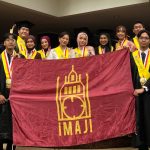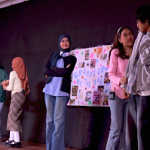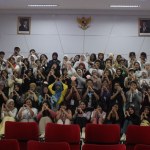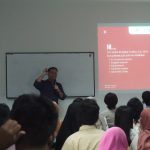Arsip:
SDG 4 – Quality Education
Community Service is an annual event hosted by the English Studies Programme at Universitas Gadjah Mada to execute one of the Three Pillars of Higher Education.
Hello, English Department Students Year 2019! Through this announcement, English Department would like to invite you all to join as committees and participants for three great series of events that will be commenced in November […].
UGM X NUS On Monday, September 12, UGM hosted its day one virtual exchange meeting with NUS students in 2022. This is the eighth year since the commencement of this exchange program.
Welcome Greeting from the Program Head Dear students of 2022, Welcome aboard. On behalf of the English Studies Program, Universitas Gadjah Mada, I am honored to welcome you to this great study program as you […].
About TF-NUS LEaRN TF-NUS LEaRN is a three-week summer program sponsored by Temasek Foundation at National University of Singapore aiming to nurture the next generation of Asian Leaders by providing opportunities for cultural exchange, networking, […].
The past four months might have been the best four months of my life. Indonesia International Student Mobility Awards has given me a chance to study at one of the most prestigious universities in the […].
My name is Fendryan Gabriel, and I would like to share my experience during this program. There were obstacles and challenges I faced, but also there were many interesting experiences and good outputs that I […].
My name is Farah Nadira Lukita Dewi, a first batch IISMA Awardee to the University of Padua, Italy, for the fall semester of 2021. I was in my second year of undergraduate studies in the […].
Joining the IISMA (Indonesian International Student Mobility Awards) program has been the highlight of my academic life. Ever since I entered university, I wanted to join an exchange abroad so I could learn more about […].
Hello, folks! I am Nazra from English Department 2019, and I was awarded the IISMA scholarship during its 2021 pilot project. Here, I have written several bits of reflections that I deem to be notable […].






